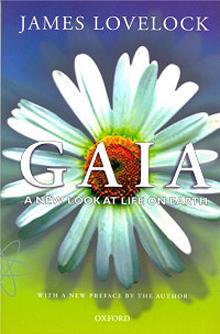Earth & Space | Crime | Environment | Health | History | Nature | Military | War | Politics | Science | Society | Technology | Truth Conspiracy
Beautiful Minds - James Lovelock - The Gaia Hypothesis / Gaia Theory

There are two forms of Gaia theory, weak gaia theory and strong gaia theory. The weak gaia theory is pretty much just saying that the earth and the organisms within it are an interconnected system with feedback loops and therefore capable of self-regulating up to a point. Strong gaia theory argues for the system to be considered an organism, and some take it further to talk about an organism with a singular purpose or even consciousness. Weak gaia is just systems theory applied to the earth and makes good sense, while the strong version is controversial. Unfortunately a lot of the good points in this work have been rubbished because people associate the good stuff with the strong theory. My impression is that Lovelock himself drifted over the line a bit himself sometimes, but mostly talked good sense.
"Strong gaia theory argues for the system to be considered an organism, and some take it further to talk about an organism with a singular purpose or even consciousness."
Within gaia theory it's reasonable to assert it shows traits of an organism in its own right. Even attributes that share similarities to conscious entities instincts for survival. Making it a self correcting system, with complex defense mechanisms for its long term survival. That encompass all the earth bound sciences, from biology, natural selection, geology, micro-biology, atmospheric physics, climate change, etc, all working in symbiosis. The complexity and interconnectedness of which we don't currently understand, but should strive to as scientists.
"Oliver L. Reiser had also developed a strong version of the Gaia hypothesis as he proposed the earth was a global organism and that human beings act as cells involved with the "embryogenesis" of the earth. Another form of the strong Gaia hypothesis is proposed by Guy Murchie who extends the quality of a holistic lifeform to galaxies. "After all, we are made of star dust. Life is inherent in nature". Murchie describes geologic phenomena such as sand dunes, glaciers, fires, etc. as living organisms, as well as the life of metals and crystals. "The question is not whether there is life outside our planet, but whether it is possible to have "nonlife"."

